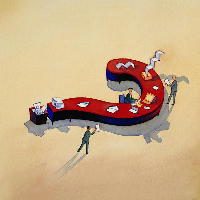By Dan Boudreau
A little diligence in planning can save time, money and energy as your business grows. Unfortunately, some people back away from business planning because it appears to be a lot of work. Although it can be a demanding task, it doesn’t have to be overwhelming, and the benefits can be remarkable.
In order to be of maximum value, a business plan must prove supply, demand and the financial case.
- Demand. Each business has a sweet spot, a certain number of customers to keep the doors open, often referred to as the break-even point. Signed contracts can be the kiss of life for some types of business. Where contracts are not possible, surveying potential customers can help to validate demand. Friends and family promising to buy your stuff forever may be a wonderful indication that people love you, but in no way should their flattering claims be interpreted as a reliable indication of demand. The purest proof of demand is sales of products or services. Regardless of the method used, an entrepreneur must be convinced that demand exists before starting a business.
- Supply. Once satisfied there is a demand for products, an entreprenuer will want to confirm ongoing access to the materials and talents that enable the business to serve its customers. A product producing business, such as a furniture manufacturer, needs a reliable supply of wood. A housecleaning service must be able to find and hire suitable workers. Most businesses need a combination of materials and skills. Restaurants, for example, will need a steady supply of food products, a rollicking good chef, and a team of cheerful servers to keep customers satisfied on the front end.
- Financial Case. Profit is probably the best measure for proving a financial case. For example, a planner will need to validate the supply costs, determine how much customer’s will pay, and project the quantities of products and services to be sold. Miscalculating any of these items can erode the forecast’s reliability. When building a financial case it’s important to forecast sales a little lower than anticipated and estimate expenses a bit higher than expected. Diligence in confirming financial items builds a reliable profit projection.
Those faced with creating a business plan usually wonder how many pages the plan should be. Paper weight isn’t much of an indication of the value of a business plan. The business information might be summarized for some audiences in a couple of pages, while a business analyst will need more detail and scads of supporting information in order to evaluate a loan request. The same amount of background research is necessary even though the plan’s thickness will vary according to the needs of the reader or audience.
The true value of a business plan arises from what it teaches the owner about her business, and the usefulness is gained from the benchmarks it provides for owners working forward. Businesses really flourish because of the actions the owner takes once the plan is done.
